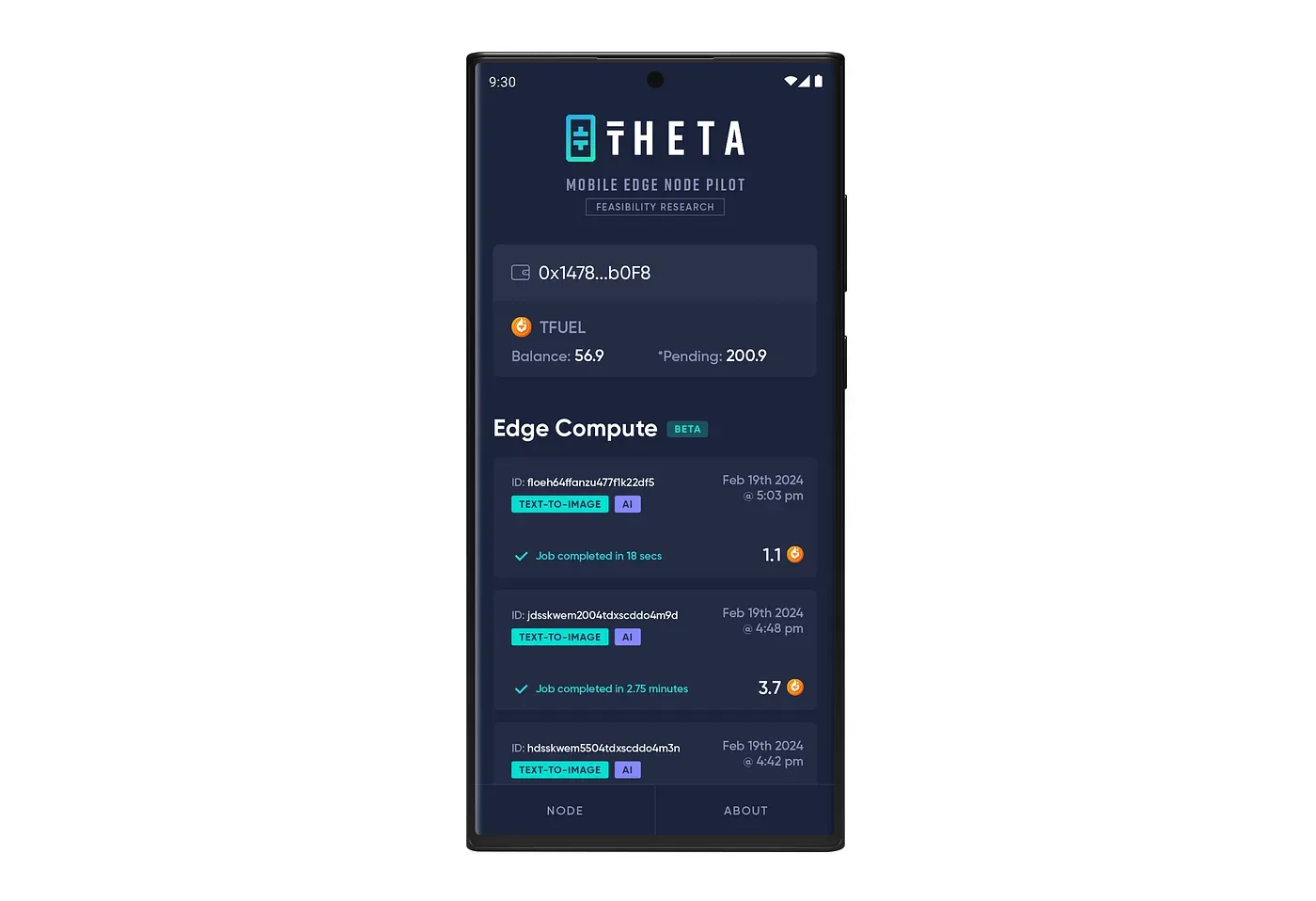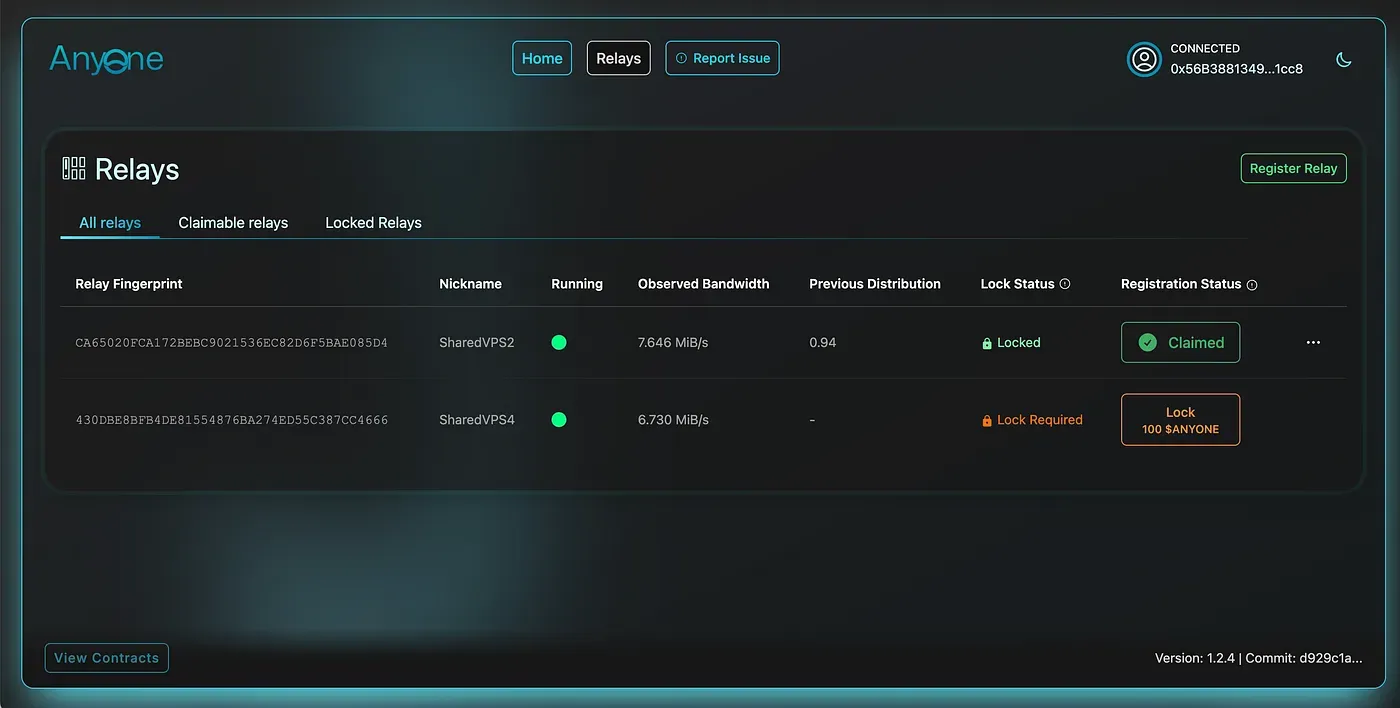Decentralized Physical Infrastructure Networks (DePin) are revolutionizing technology by facilitating decentralized ventures in tangible infrastructure.
Recent developments in the DePin sector include: Theta’s release of the mobile version of its EdgeCloud Node, broadening its network to Android devices; Helium’s collaboration with the University of Southern California (USC) Trojans, enhancing its presence at significant sporting events; and Anyone’s announcement of its Incentivized Testnet, which rewards token incentives for relay operators supporting its infrastructure.
Theta Launches EdgeCloud Node for Android Devices
A significant milestone for Theta occurred with the launch of the mobile version of the Edge Node for Android devices on September 25. This development extends Theta EdgeCloud’s network, which already consists of over 30,000 desktop nodes, by potentially utilizing the computing power of 3.9 billion Android devices globally. Android smartphone users can now contribute their GPU capabilities to Theta’s EdgeCloud network and receive TFUEL tokens as compensation.
“For the very first time, the Theta team has integrated a video object detection AI model (VOD_AI) that operates on consumer-grade Android mobile devices, delivering genuine computation at the edge and enabling unmatched scalability and reach. VOD_AI utilizes a computer vision method powered by AI to analyze video frames for object identification by scanning these frames to detect potential objects, drawing bounding boxes around them. This method mirrors how the human visual cortex functions,” the team shared.
Read more: How To Invest in Artificial Intelligence (AI) Cryptocurrencies?

Users can configure their Edge Node to operate only when their device is connected to WiFi and charging, such as overnight. With numerous Android devices contributing globally, Theta can manage vast computing tasks like video processing continuously. For instance, if 30,000 devices each work for 8 hours, they collectively provide 240,000 hours of computing power in a single day.
The system divides large videos into 14 million small segments and distributes the workload across devices, efficiently processing even complex, high-resolution videos. This represents a significant advance in edge computing capabilities.
Helium Collaborates with USC Athletics
Helium Mobile has officially joined forces with the University of Southern California (USC) Trojans, initiating a collaboration for the 2024-25 sports season. As part of this initiative, Helium Mobile will have a prominent presence at USC football and basketball home games, beginning with the highly awaited USC vs. Wisconsin game on September 28, 2024, where Helium Mobile will act as the game sponsor.
Fans attending these events can look forward to Helium Mobile branding throughout the stadium, along with engaging activities, giveaways, and promotions aimed at mobilizing USC supporters. The partnership will also feature unique events like student section takeovers and special fan experiences.
“We take pride in supporting the USC Trojans. Sports unite people, and we are thrilled to have USC as an integral part of the Helium Mobile family. We recognize the importance of providing students, student-athletes, faculty, and alumni with dependable and affordable cell phone service,” remarked Helium Mobile COO Frank Mong.
Read more: What Is DePIN (Decentralized Physical Infrastructure Networks)?
Helium Mobile, recognized for its $20 monthly phone plan offering unlimited talk, text, and data, will leverage this collaboration to present the Helium Network to the USC community.
Prioritizing reliable connectivity for popular applications like YouTube, TikTok, and Instagram, the network aims to fulfill the expectations of students and fans who depend on their devices throughout the day. Helium subscribers also have the opportunity to earn rewards for fostering the network’s growth.
Anyone Gears Up for Incentivized Testnet
The Anyone Incentivized Testnet and Dashboard will launch shortly. This rollout will mark the transition of the network into an incentivized phase, permitting any relay operator to earn mainnet ANYONE tokens through the distribution mechanism.
At first, the distribution rate will be set at 25% of the final target. Operators will be able to access the dashboard, track rewards allocated on Arweave Layer-1, and claim them on the Sepolia Testnet. Mainnet tokens will subsequently be airdropped weekly on a 1:1 basis corresponding to the testnet rewards redeemed.
The team will conduct tests and audits of features throughout the testnet duration before integrating them into the rewards system. Updates like family requirements, geolocation multipliers, and mainnet ANYONE locking will enhance rewards as the protocol expands.
Read more: Top 12 Crypto Companies to Watch in 2024

While DePIN remains in its nascent phases and has certain limitations, it facilitates the exchange of tokens between synthetic and real-world assets. This mechanism bolsters traditional infrastructure by providing last-mile solutions in regions where conventional models are not financially viable.
Disclaimer
In compliance with the Trust Project guidelines, BeInCrypto is dedicated to impartial and transparent reporting. This news article aims to provide accurate and timely information. However, readers should independently verify facts and consult professionals before making decisions based on this content. Additionally, please be aware that our Terms and Conditions, Privacy Policy, and Disclaimers have been revised.








